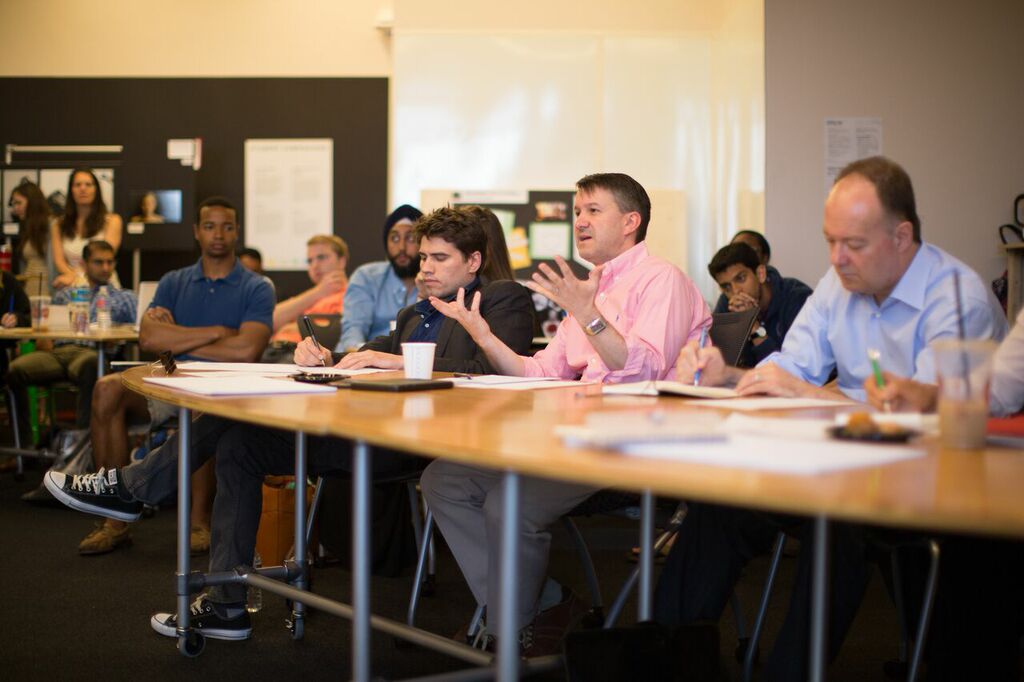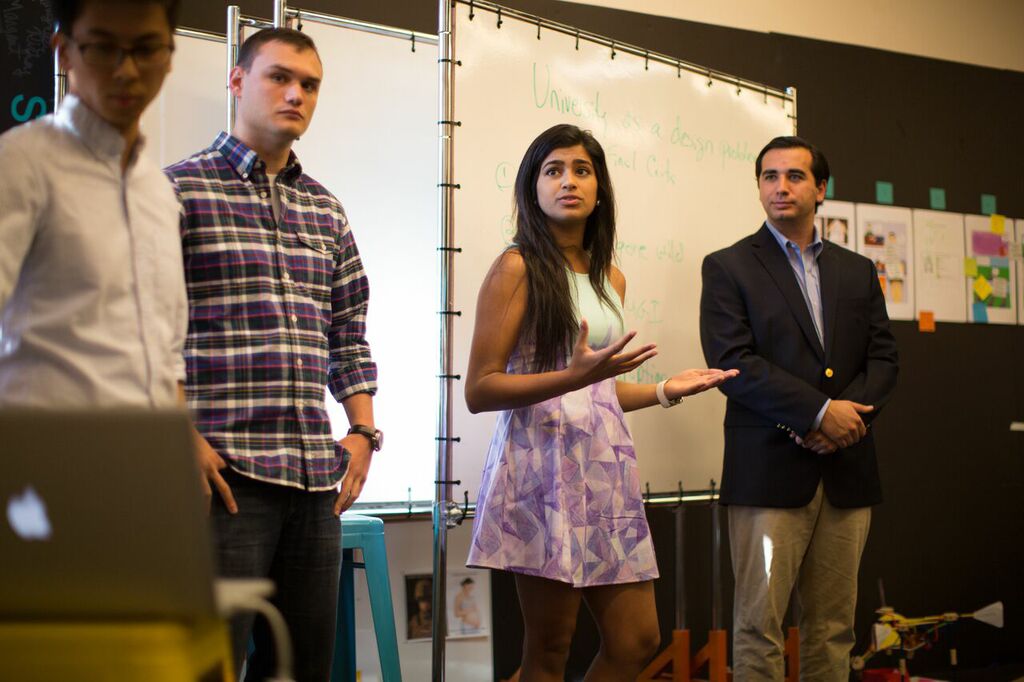the Studio Model
of Creative Education
CREATIVITY is one of humankind’s most valuable assets, yet we still have no effective means of nurturing creativity in students. Indeed, the opposite is true: from kindergarten to graduate school, formal education tends to stifle creativity. Faced with this reality, many people have advocated for students to spend more time in creative disciplines like art, music, etc. But this mindset is misguided, because it frames creativity as a separate subject matter that conflicts with other disciplines.
Over the last few years, I’ve been leading a group of faculty and partners at Georgetown University to design a different approach. Instead of trying to offer students more classes in creative disciplines, we have incubated an ecosystem that can infuse creativity into every discipline and department. We call it studio, and we believe it has the potential to transform education at every level.


STUDIO is an ecosystem in which students work to create—to make, hack, invent, design, innovate, etc. This can be for part of a course, or for an entire course. We’ve piloted courses in studio that span a variety of disciplines, including philosophy, policy, biology, physics, education, bioethics, design, english, entrepreneurship, and more. But studio also offers students a context to pursue creative work outside of classes, in ongoing projects, club activities, jobs, and other co-curricular.
In studio, students are actually expected and empowered to create—to bring new and valuable things into existence. In this way, studio is a platform for students to make a real impact in the world.
I designed the studio model and directed our pilots of the studio ecosystem over the last few years. I was also the primary studio faculty for over a dozen courses, hundreds of students, and dozens of student projects. Recently my attention on the project has shifted to communicating our work. For example, I'm currently writing a book to make the studio model accessible to everyone. Check out the first draft chapter of the book.